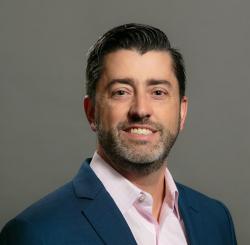Expanding access to an effective therapy in the fight against hepatocellular carcinoma (HCC)

Liver cancer patients once had a bleak prognosis with limited treatment options, but encouraging clinical trial results and recent regulatory approval of TheraSphere™ Y-90 Glass Microspheres, a radioembolization technology, offer fresh hope.
TheraSphere is a treatment option in a relatively new field of cancer care called interventional oncology, in which the diagnosis, treatment and palliation of the disease are performed through advanced imaging and minimally invasive techniques – often through a catheter or a needle instead of surgery. In the case of TheraSphere, a very high dose of radiation is delivered to the tumor through a catheter. Although radiation is a common and often effective treatment for cancer, a significant drawback has been that it destroys not only the tumor but also nearby healthy tissue.
“The Holy Grail of radiation oncology is to find a way to maximize the dose to the tumor while providing maximum safety and protection of the healthy tissue,” said Peter Pattison, president of Interventional Oncology, Peripheral Interventions, Boston Scientific. “TheraSphere is a single highly concentrated dose of radiation applied to the tumor with less impact to normal tissue compared with conventional external beam radiation.”
Maximum impact on tumors, minimal side effects
Interventional radiologists use TheraSphere to treat hepatocellular carcinoma (HCC), the dominant type of primary liver cancer, in an out-patient procedure. After threading a catheter through the groin or the wrist, the interventional radiologist injects millions of microscopic glass beads that contain radioactive yttrium (Y-90), into the artery that feeds the tumor.
The glass beads – each one about one-third the width of a human hair – lodge in the tumor and destroy the cancer cells while having only minimal impact to the surrounding healthy liver tissue. The beads emit a high dose of radiation over approximately two weeks before it dissipates. Since the radiation emitted from the microspheres can only travel 2mm at the most, patients are usually discharged the same day as the procedure and can return home to be with their loved ones.
HCC is one of the most prevalent cancers in the world and the most common type of primary liver cancer, with more than half a million new global cases diagnosed every year. The American Cancer Society estimates that that more than 32,000 new cases of liver cancer will be diagnosed in the U.S. in 2021. Since 1980, liver cancer incidence rates have more than tripled and the death rates have more than doubled. According to Pattison, with FDA approval, TheraSphere will be accessible to nearly half of patients with HCC in the U.S.
Benefits of radioembolization therapy for liver cancer
Physicians choose TheraSphere to treat HCC patients for several reasons:
- To shrink the tumor to the point where the patient can be put on a liver transplant list.
- To prevent further tumor growth while patients await surgery, a common use during the recent pandemic when surgical operations were temporarily restricted.
- As an alternative to surgery for patients in the early stages of cancer. In these cases, TheraSphere can destroy the tumor by delivering a large radiation dose to the cancerous section of the liver.
TheraSphere was recently approved by the U.S. Food and Drug Administration (FDA) to treat patients with HCC. The FDA based its decision on the results of the LEGACY trial, which demonstrated excellent and durable tumor control, and a high overall survival rate in patients with early and advanced HCC. The study showed that 100% of patients who received up to two treatments of TheraSphere saw at least a 30% reduction in their tumor size, with many seeing the tumor eliminated altogether. Of those who had the treatment followed by transplantation or resection surgery (to cut out the tumor), 93% survived at least three years.
The benefits of radioembolization therapy, also referred to as selective internal radiation therapy (SIRT), also have been recognized by the United Kingdom’s National Institute for Health and Care Excellence (NICE), which recently recommended TheraSphere to treat HCC patients through the National Health Service (NHS) in England, Wales and Northern Ireland.
“We know radiation works. TheraSphere is a better, safer, and more intense way of using radiation to treat cancer,” Pattison said.
Oncology is a newer area for Boston Scientific and a relatively new area for the medical device industry. However, with the recent FDA approval, the company expects to focus efforts on bringing this treatment to more patients.
“We also want to see how TheraSphere works with whole-body therapies, like immunotherapy, as well as investigating applications for different types of cancer, including prostate and brain,” Pattison said.
In fact, plans are underway for a randomized trial to study the effect of TheraSphere in tandem with immunotherapy in patients with HCC not eligible for curative treatments. “The idea is that TheraSphere can reduce the size of a tumor and possibly even enhance the effect of the immunotherapy,” explains Pattison.
Learn more about liver cancer and how it is treated with targeted radiation therapy.
TheraSphere indications, safety and warning information can be found here.